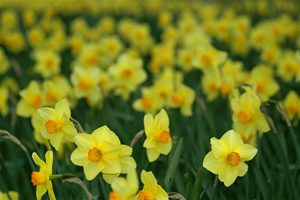
There are a number of dangers to avoid or be aware of for allergy-sufferers throughout the spring and summer. Flower and grass pollen, ozone, pet dander and mold form the basic allergens that cause the majority of respiratory allergic symptoms.
It would be nearly impossible to make it through the entire season without once having a reaction, mainly because you can't control what you're going to be in contact with at every single point of the day. There are still quite a few effective measures you can take, however, that will significantly reduce your exposure time and the likelihood of you experiencing symptoms.
Indoors
The most important room you'll want to take care of is the bedroom since it's where many people spend the most time. You should to invest in hypoallergenic bedding. Outside allergens won't penetrate these like they would regular fabric bedding. Mattresses should either be hypoallergenic or sealed under a hypoallergenic case. This prevents allergens like dust mites and harmful chemicals from escaping the mattress and entering your breathing space. It also prevents bed bugs from getting you at night if they're present.
If you have a pet, don't allow them to sleep on the bed or by the air conditioner vent, since the last thing you want is to have pet dander blowing all over your room. Closing your windows and relying on filtered, circulated air is also a good anti-allergen strategy.
A HEPA whole house air purifier attached to your home's central air conditioner will filter the vast majority of airborne allergens from the air being circulated. Dehumidifiers also play a big role in getting rid of allergens. Keeping a relative humidity of 45 or below essentially starves dust mites and mold colonies of the moisture they need to survive, eventually eliminating them from your home. When you clean your fabrics, use a vacuum cleaner with a HEPA filter. They are proven to trap more particles than a regular vacuum and will not leave unwanted dust particles floating in the air.
Outdoors
Before you even step outside the first thing you should do is check pollen count forecasts. If counts are high it's advisable that you simply avoid going out but for many, missing work isn't an option. In these cases you should be sure to get ahead of your allergies and take your medication before your symptoms manifest. Be careful what times of the day you go outside as certain periods, like early mornings when you're likely to be making your commute, will have higher pollen levels than others. Also, when you're driving, leave the windows up and rely on circulating the air conditioner in your car.
If you'll be doing yard work, always wear a dust mask. Limit the kind of jobs you do. For instance, mowing and weed-pulling can stir up lots of allergens and perhaps should be left to someone else to do. Clothing are agents for carrying allergens like dust and pollen. Change clothes that you wear outside as soon as possible. Keep them in a closed hamper and use an electric dryer when you wash them. Drying outside only exposes them to more allergens.
Lastly, avoid windy or humid conditions. It's best to venture outside right after it rains. This removes both pollen and some humidity from the air.
If you're looking for allergy products to protect you and your family from the dangers allergens pose, not just in allergy season, but year-round, come to Allergy Be Gone for the best in affordable allergy relief.









